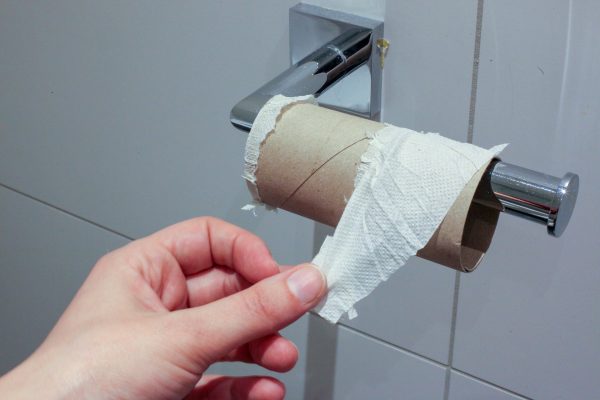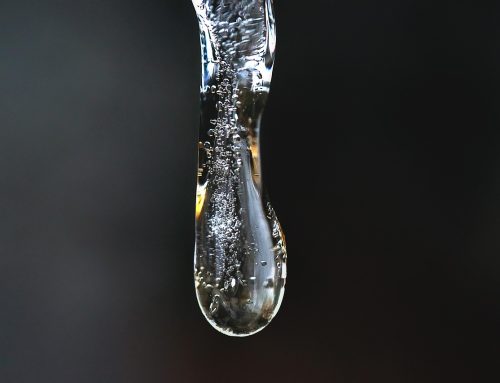A vécépapír manapság egy alapvető használati cikknek számít a háztartásokban. Mivel mindenkinek szüksége van rá, így az illemhelyek elengedhetetlen tartozékának számít. Ez azonban nem mindig volt így, léteztek ugyanis olyan történelmi korok, amikor az embereknek nélkülözniük kellett a teljes kényelmet a toalettekben.
Korai megoldások
A civilizációk megjelenése előtt az őstársadalmak még sokkal közelebb éltek a természethez, mint a mai utódok. A mesterségesen létrehozott tárgyak helyett a környezetükben talált köveket és faágakat használták. A dolgukat is a bokrok rejtekében végezték, nem messze a lakóterületként szolgáló barlangtól. A törléshez általában leveleket, fűcsomókat, illetve kéregdarabokat gyűjtöttek, de olykor a moha is jó szolgálatot tett.

A modern vécépapír elődjét az ókori Kínában találták fel. A megmaradt bizonyítékok alapján a 6. században a kínaiak már papírt alkalmaztak az alfelük megtisztítására. Mindez egy tudós feljegyzéséből olvasható ki, aki pontos leírást adott arról, hogy a törlésre milyen papír nem való. Az írott műveket például tilos volt ilyen módon megrongálni.
Az ókori görögök az illemhelyeken egyszerű rongyokat vetettek be, a rómaiak viszont érdekes megoldást találtak a problémára. Egy hosszabb bot végére szivacsot erősítettek, ami kellemesen puha érzést biztosított. A gond csupán az volt, hogy minden személy ezzel törölte a hátsóját. Használaton kívül a szivacsdarabkát egy vödörben tárolták, amelybe tengervíz és ecet elegye volt töltve fertőtlenítésként. A nyilvános vécékben a vödör helyett sokszor lyukakat ástak, ezekbe állították bele a botot.
A papír alapú kendők a középkorban még mindig elsősorban Kínában terjedtek rohamosan. A feljegyzések szerint a vécépapír nem számított luxusnak, a császári palotán kívül a közemberek körében is népszerű volt. Az uralkodó viszont az illatosított és különösen puha tapintású termékek megvásárlását is megengedhette magának.
Azt, hogy a világ egyes tájain milyen segédeszközöket találtak fel az emberek a vécézés utáni tisztálkodásra, nagyban befolyásolták az éghajlati tényezők. A hidegebb vidékeken élők például havat és zuzmót alkalmaztak, a trópusi emberek pedig kagylókat, illetve kókuszhéjat gyűjtöttek. Indiában a mai napig a vizes öblítés számít gyakorinak, de lenti testrészükhöz szigorúan csak a bal kezükkel érhetnek. Egy 16. századi francia író, François Rabelais munkásságából sejthető, hogy Európában az újkor hajnalán már ismerték az emberek a vécépapír. Ugyanakkor François hatékonyabbnak találta, ha a törléshez élő ludat használnak.
A modern vécépapír elterjedése
A modern vécépapír a 19. században indult világhódító útjára. Az amerikai kontinensen egy bizonyos Joseph Gayetty nevezetű úriember próbálkozott első ízben a tekercsek gyártásával, de kudarcot vallott. Nem sokkal később viszont egy másik cég piacra dobott egy aloe verás változatot, ami már sikert aratott. Ez nem csak az illatnak volt köszönhető, hanem annak is, hogy a cég a megrendelő logóját kérés szerint a papírra nyomtatta. A lehetőséggel leginkább a nagyobb hotelek és szállodák éltek.
A vécépapíron található perforáció megjelenésével kapcsolatban viták alakultak ki. Az egyik tábor úgy véli, az első perforált tekercsek a New York állambeli Seth Wheller nevéhez köthetők, mások azonban a Scott fivéreket tartják az igazi feltalálóknak. Mindenesetre a szabadalmazást Wheeler kérvényezte, csak úgy, mint a guriga és vécépapír tartó bejegyzését.
Okozhat-e dugulást a vécépapír?
A mai vécépapírok nagy része vízben könnyen oldódik, így ritkán okoz dugulást. A problémát leginkább a rossz öblítési szokások idézhetik elő, a spórolás és a kevés öblítő víz használata növelheti a kockázatokat. Amennyiben duguláselhárításra, kamerás vizsgálatra, nagynyomású womás csatornatisztításra, vagy zsírtalanításra lenne szüksége, cégünk a nap 24 órájában áll az Ön rendelkezésére! A munka sürgősségétől függően csapatom akár ünnepnapokon is vállalja a kiszállást.
Tekintse át szolgáltatásainkat, és gond esetén keressen minket bátran a megadott elérhetőségek valamelyikén!









